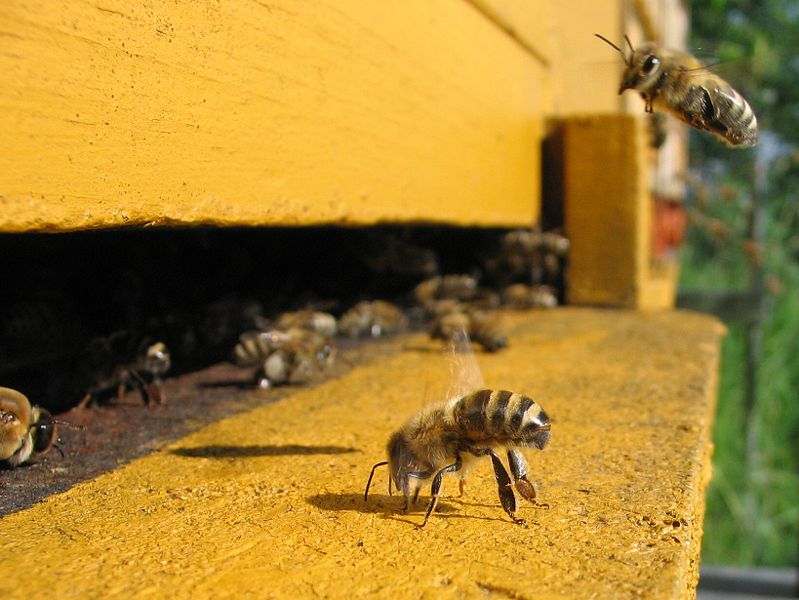We're open daily! View holiday hours
Science News
Saving Bees
April 1, 2013
by Molly Michelson

“They started to fall on their face, to die like crazy. We’ve been doing this 30 years, and we’ve never experienced this kind of loss before.” That’s a Montana beekeeper in last week’s New York Times describing the death of his honeybees.
Bees continue to die from Colony Collapse Disorder (CCD) while scientists race to discover the cause—and to determine the effects of the drastic loss in the population of these important pollinators.
The last couple weeks have witnessed incredible acceleration in the race to save bees. It started on March 21st, when beekeepers and environmentalists sued the EPA over neonicotinoid, urging the agency to ban the pesticide linked to CCD.
Then, last Wednesday, a study in Nature Communications demonstrated the effects of pesticides on bee brains. The researchers looked at neonicotinoid and another type of pesticide, coumaphos, and found within 20 minutes of exposure, neurons in the major learning center of the brain stopped firing. A parallel study earlier this year in the Journal of Experimental Biology found that bees exposed to the combined pesticides were slower to learn—or completely forgot—important associations between floral scent and food rewards. These findings provide a possible underlying cellular mechanism for the observed disruption and altered foraging behavior seen in bees during CCD.
Finally, two studies published in Science last Friday, describe the loss of diversity of bees and the effect that loss and the decline of all bee species is having on crops that humans depend on. The news is not good. According to a related article in the journal, the studies find “that native wild pollinators are declining… [and] that managed honeybees cannot compensate for this loss.”
For those of us who enjoy the fruits of the bees’ labors—from almonds and apples to onions and watermelons—we should hope that the lawsuit, the research, and the attention will lead to a rapid solution to bee decline.